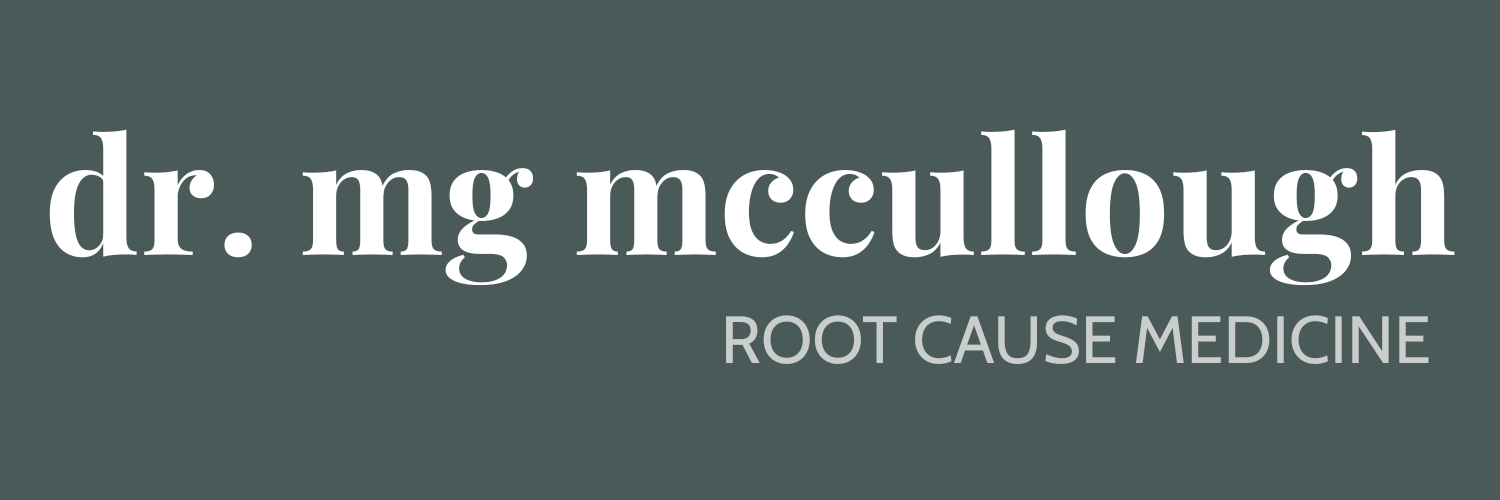Why Acupuncture Doesn't Work
I tried acupuncture before, and it didn't work.
I recently had a conversation with a friend who was telling me about a friend of hers who is desperately suffering with migraines. The friend has tried acupuncture before, and it didn't help, so naturally, why would she waste her time and money trying it again?
Great question!
In this post, I'm going to explain a couple of things that may be missing from her (or your) understanding of how acupuncture works, because sadly, it can often be missing from some acupuncturists' understanding as well, simply because it’s not part of standard acupuncture education. Once we fill in the blanks, you'll have a different understanding and therefore, likely, a different answer to this common question.
Acupuncture school is typically four years of both classroom and clinical learning; many schools are set up similarly to western medical school where the bulk of the classroom learning is the first two years and most of the last two years are focused on clinical experience.
With rare exception, what is taught in schools is called TCM--Traditional Chinese Medicine, which is a modern, standardized version of classical Chinese medicine. There are almost always opportunities to learn other styles of acupuncture, but the bulk of what is required to graduate from acupuncture school and to get licensed both nationally and in the states who have their own state licensure, like NM and CA, is TCM. So it's no wonder that this is largely what is practiced in America. We acupuncturists have spent a lot of time and effort learning TCM, and to a large extent, it works pretty well--except when it doesn't.
I am also a migraine sufferer, on and off since age 10, and in my 30's, the neurological symptoms got so intense, that I once found myself unable to speak for about five minutes. I continued to struggle with migraines in acupuncture school, and in my first two years, I would go to the school clinic for treatment, mostly to no avail.
Just like my friend's friend, I was incredibly underwhelmed with the result, as acupuncturists would continue needling the same points, traditionally prescribed by TCM for migraines, despite that it wasn't helping me.
For some reason, I just knew there was more to this medicine.
I transferred to Southwest Acupuncture College mid-program, and by the grace of the universe, I had a clinical supervisor who said to me, 'yes, in fact, there is more' and introduced me to the Complement Channels, which are sometimes taught as a part of TCM education but breezed over and watered down.
Classical Chinese medicine is the most fascinating thing I've ever learned, and here's why: it has a very logical view of disease progression, from the most exterior to the most interior--levels, if you will. When one level fails to handle our exposure to something harmful—whether physical or emotional—our bodies recruit help from another level. All pathology is not created in the same way, but TCM treats it as if it is.
In Chinese Medicine, we observe an organ system similar to biomedicine, though there are differences, but in addition to the organ system, we have a system of channels, kind of like highways. You can think of it like a road map; certain interstates directly connect to certain states, but you can also use those same interstates to get elsewhere if you make the right connections to other highways and backroads. Some destinations are more ‘difficult’ to get to, but this doesn't mean it can't be done.
These highways are called primary channels, and they have to do with what is going on right now, which is why they will usually work really well when you wake up with a cold, a stiff neck, diarrhea or vomiting, or maybe even a headache. If you can keep these channels working well, you're unlikely to need the help of these other levels; however, we're human, and things aren't always perfect, right?
Especially when you've had a long standing problem or an acute illness that seems complicated or strange--chronic sinus congestion, chronic neck pain, IBS, an autoimmune disease, attention problems, mental health concerns, or migraines--those are not primary channel pathologies. While it is possible that people with chronic problems can and do benefit from TCM acupuncture treatments, especially if the treatments are frequent, it is more likely that they will not.
Primary channels simply cannot reach these other levels. It's like using the wrong road to get to your destination. There's nothing wrong with the road itself; it's just not the one that's going to get you to where you want to go.
TCM has helped so many people, but there is so much more that can be done, which is why I'm talking about this now and why I try to teach these ideas to my patients. My goal is for people to understand that acupuncture received in a community setting is not the same thing as what I offer in my clinic, though it is often what you are receiving in other clinics where practitioners are solely using primary channels.
This is a critical, missing piece of information in the conversation about how acupuncture works, as well as how effective it can be and what it can treat. It's missing from schools, from the practice of the medicine, and as a result, from patients' understanding. But, there is a dedicated and growing group of acupuncturists worldwide, committed to learning this medicine.
If you or someone you know has tried acupuncture before without result, look for a practitioner of complement channels (also called secondary vessels) and/or someone who has studied with Jeffrey Yuen, the foremost expert on classical Chinese medicine in the world, or his senior student, Ann Cecil-Sterman, who I began studying with in 2014. Also, feel free to email me at getwell@gvlacupuncture.com, and I'll be happy to try to help you find someone in your area.

